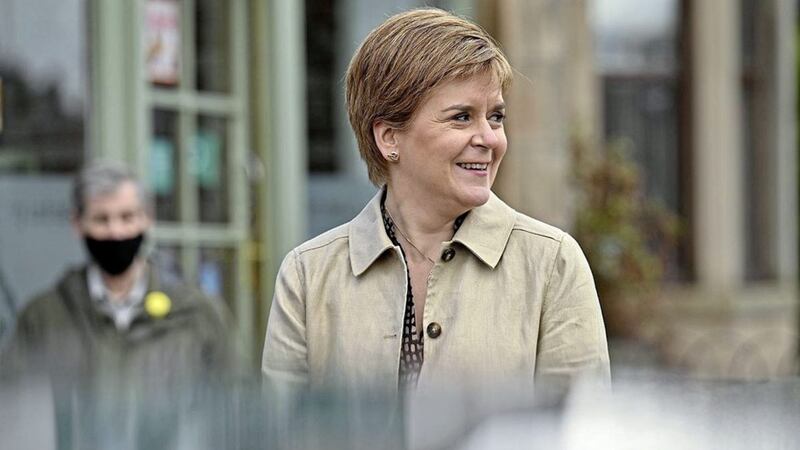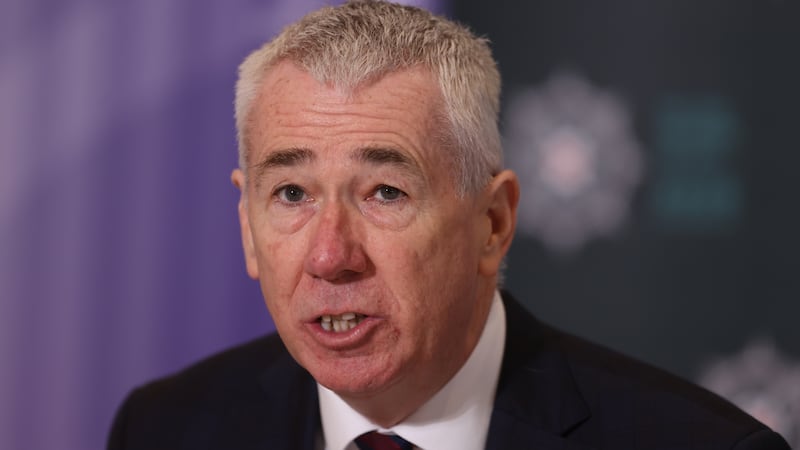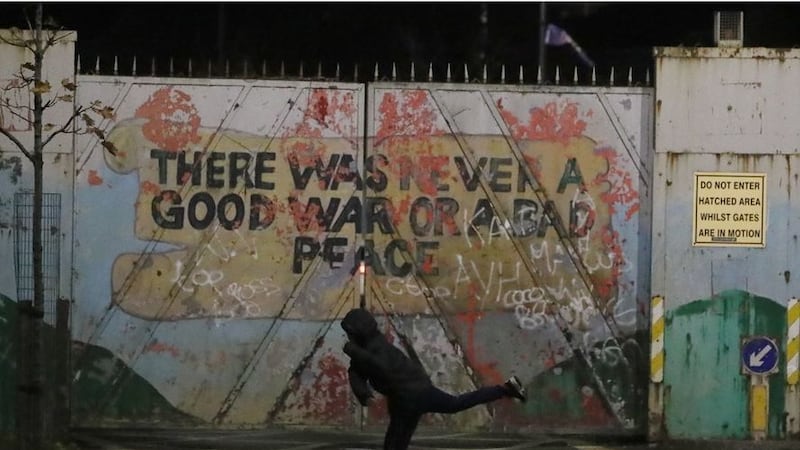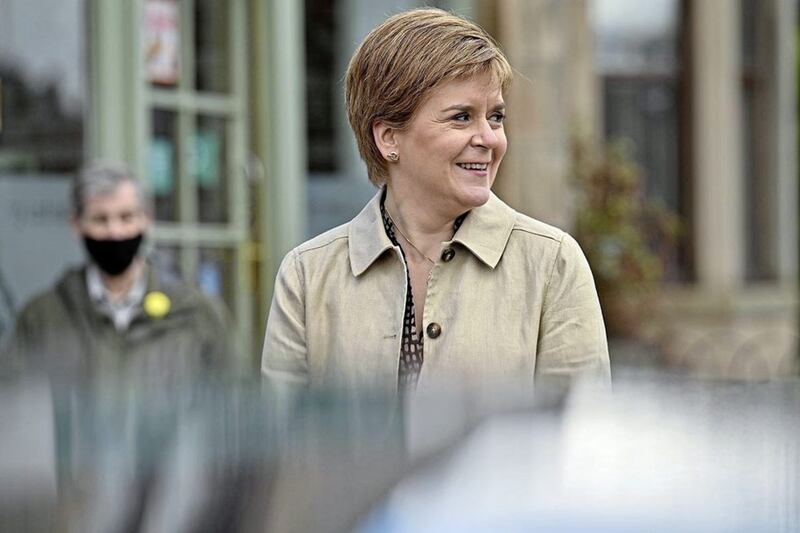VOTERS in Scotland will go to the polls tomorrow in what is being billed as a decisive election for the future of the union.
The election is about choosing members for the 129-seat Holyrood parliament, however, the outcome is likely to dictate whether there is another independence referendum.
The implications of a vote for Scottish independence for Northern Ireland would be huge, given the unionist population's strong cultural ties with Scotland and the impact of independence on what would be left of the United Kingdom, with power becoming even more centralised in London.
Like the Irish unity debate, many people in Scotland believed the constitutional question had been put to bed for the time being at least, until Brexit unsettled the country's pro-European majority (62 per cent of Scots backed remain). There is also widespread dissatisfaction with the British government's failure to follow through on so-called devo-max commitments given before the last vote on independence and growing resentment of Boris Johnson's government.
In the 2014 referendum, 55.3 per cent of the Scottish electorate voted to maintain the union, while 44.7 supported independence.
The SNP currently has 61 MSPs, the Scottish Conservatives 30, and Scottish Labour 23.
Of the smaller parties, the Greens and LibDems have five seats each, with a further three independents and a single representative respectively for Reform UK and non-affiliated.
In simple terms, the SNP would like a majority of 65 – a small increase on its current showing – as a demonstration of the public will for a fresh vote on independence before the end of 2024.
The British prime minister has said regardless of the outcome of tomorrow's poll, there will not be a second referendum, with the Tory leader arguing that the 2014 vote was promoted by the SNP as a "once-in-a-generation" opportunity.
However, the denial of another referendum would be seen by many in Scotland as London seeking to rule by coercion rather than on the basis of democracy, potentially prompting a situation similar to that in Catalonia, where separatists initiated their own controversial vote to secede from Spain.
Scottish Conservative leader Douglas Ross has said any unilateral attempt by the Scottish government to hold its own referendum would be "illegal", though he recently tweeted that an SNP majority would "guarantee of another independence referendum", while also urging backing for his party on the basis that it would prevent another vote. SNP leader Nicola Sturgeon has insisted a Scottish government-run referendum would be legal unless struck down by the courts.
Polling over the past year has shown support for independence was above the crucial half-way mark but more recently the numbers have fallen back. Last week, the Scotsman newspaper published a poll that put support for 'Yes' at just 42 per cent, the lowest level of support for independence in since 2019.
The destiny of a second referendum does not lie solely with the SNP, however, with other pro-independence parties also likely to push for a vote.
The Alba Party, a new pro-independence political movement headed by former SNP leader Alex Salmon, looks on paper to be the main threat to Nicola Sturgeon's dominance of tomorrow's poll. However, a survey earlier this week for The Herald by BMG Research forecasts the new party taking only two seats, in a hybrid voting system that elects 73 constituency representatives on the basis of first past the post, with the remainder drawn from a regional ballot that's designed to make the overall result more proportional.
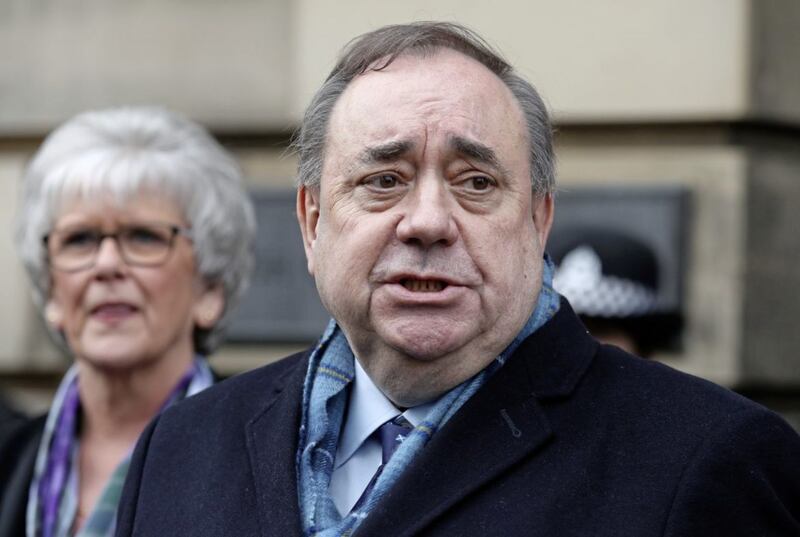
The same survey had the SNP taking 68 seats and the Greens nine, giving Holyrood 79 pro-independence MSPs out of 129.
Arguably, the greatest concern among the pro-independence grouping is low turnout, with the pandemic expected to impact on the numbers visiting the polls.
Turnout in 2016 was 55.6 per cent and if it were to drop below 50 per cent this time, unionists would argue that calls for a referendum lack legitimacy.
As the election campaign entered its final stretch this week, opinion on independence is split firmly down the middle 50/50, according to Opinium Research, with just 28 per cent of the electorate believing there should be a referendum within two years.
The survey's findings may give some solace to unionists on the western shores of the North Channel, who while publicly keen to play down the impact of Scottish independence, must surely regard it as significant in terms of feeding into our own intensifying constitutional conversation. It all makes for a gripping contest with potentially historical ramifications.
